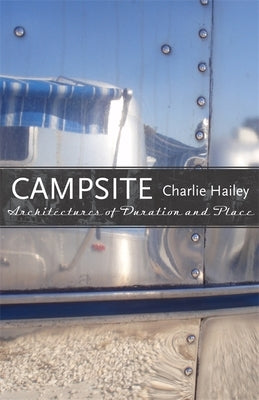Before you leave...
Take 20% off your first order
20% off
Enter the code below at checkout to get 20% off your first order
Discover summer reading lists for all ages & interests!
Find Your Next Read

Camping is perhaps the quintessential American activity. We camp to escape, to retreat, to "find" ourselves. The camp serves as a home-away-from-home where we might rethink a deliberate life. We also camp to find a new collective space where family and society converge. Many of us attended summer camps, and the legacies of these childhood havens form part of American culture. In Campsite, Charlie Hailey provides a highly original and artfully composed interpretation of the cultural significance and inherently paradoxical nature of camps and camping in contemporary American society. Offering a new understanding of the complex relationship between place, time, and architecture in an increasingly mobile culture, Hailey explores campsites as places that necessitate a unique combination of contrasting qualities, such as locality and foreignness, mobility and fixity, temporality and permanence, and public domesticity. Camping methods reflect the rigid flexibility of the process: leaving home, arriving at a site, clearing an area, making and then finally breaking camp. The phases of this sequence are both separate and indistinct. To understand this paradox, Hailey emphasizes the role of process. He constructs a philosophical framework to elucidate the "placefulness" -- or sense of place -- of such temporary constructions and provides alternative understandings of how we think of the home and of public versus private dwelling spaces.Historically, camps have been used as places for scouting out future towns, for clearing provisional spaces, and for making semipermanent homes-away-from-home. To understand how "cultures of camping" develop and accommodate this dynamic mix of permanence and flexibility, Hailey looks at three basic qualities of the camp: as a site for place-making, as a populist precursor for modern built environments, and as a "method." Hailey's creative and philosophical approach to camps and camping allows him to construct links between such diverse projects as the "philosophers' camps" of the mid-nineteenth century, the idiosyncratic camping clubs that arose with the automobile culture in the early 1920s, and more recent uses of campsites as temporary housing for those displaced by Hurricane Katrina.In Campsite, Hailey makes a singular and significant contribution to current studies of place and vernacular architecture while also reconfiguring methods of research in cultural studies, architectural theory, and geography.
A registered architect who has worked with the designer-builders Jersey Devil, Charlie Hailey is an assistant professor of architecture at the University of Florida.
Thanks for subscribing!
This email has been registered!
Take 20% off your first order
Enter the code below at checkout to get 20% off your first order